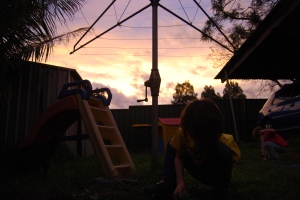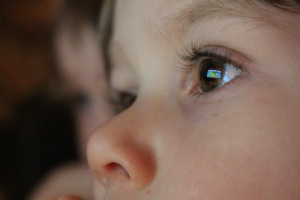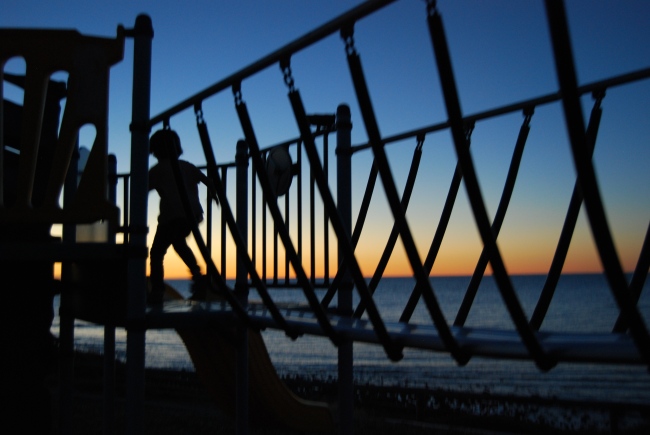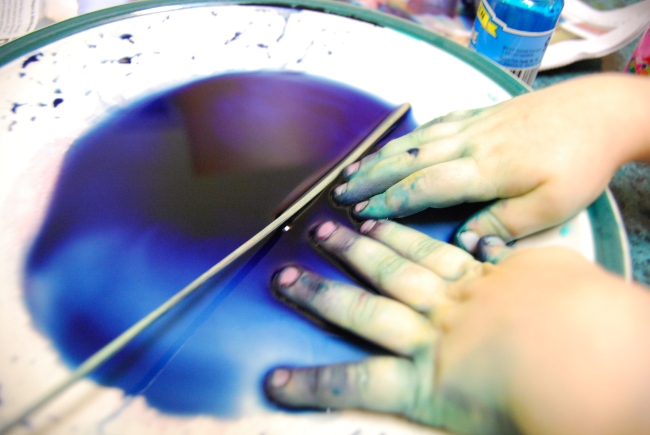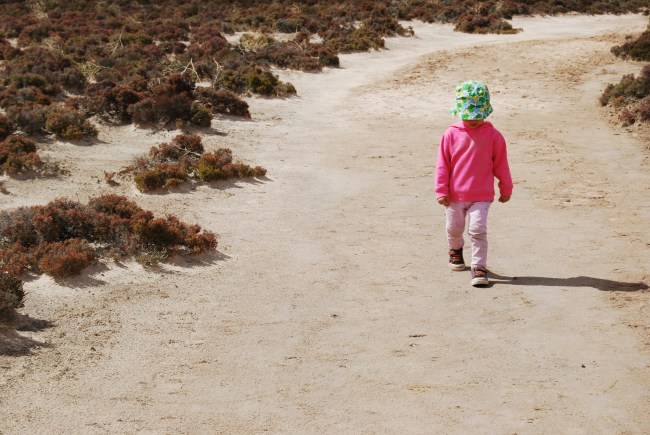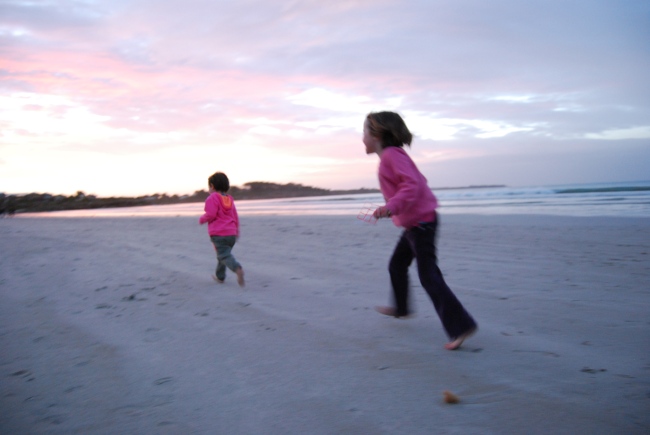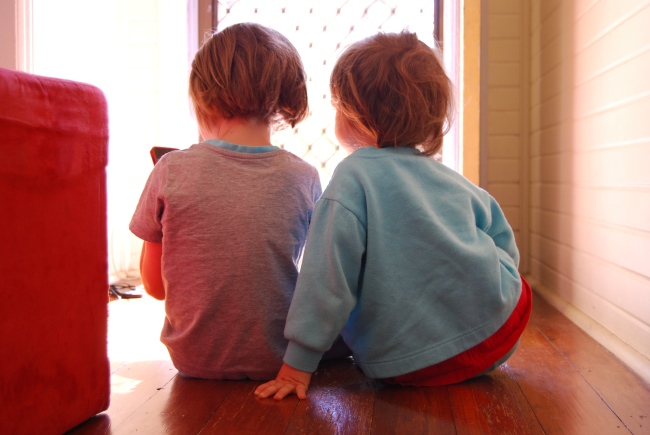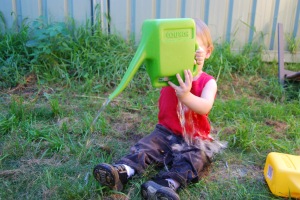I hate homework. I hate homework more as a parent than I ever hated it as a kid.
My daughter has had homework every school day since she was five. Trying to get her to do it has ruined evening after evening. For me, anyway. And she’s only in Year 2. Think how many more of my evenings it’s going to ruin.
Maybe other parents have kids who come home, sit down and do their homework straightaway, without complaint. Well, I don’t. The last thing my daughter feels like after a long day at school is sitting down and doing more schoolwork, and I don’t blame her. I’d rather she was outside playing, anyway.
I not only have to push my daughter into doing homework, I have to supervise her and make sure she’s doing it right. All those sentences. All those sums. All those clowns. (Yes, clowns. Recently, as one part of her maths homework, my daughter had to draw 110 clowns. As if clown phobia isn’t a serious enough problem in our society already.)
Six hours of schooling a day should be enough for little kids. If they can’t pick up concepts after that amount of time, maybe they’re too young to pick them up.
My daughter, for her Year 2 homework this year, has had to learn to spell the word “psychology” and do algebra. What’s the rush? What is she going to spend the next 10 years at school doing?
I don’t give a stuff how many hours a day kids in Japan or Korea spend studying or how well they do in exams. Why are we obsessed with that kind of comparison, as if the worth of our children can be judged by their maths results? What about other things, like creativity and health and… um, I don’t know, happiness?
How much of what kids learn at school is going to be useful in their lives, and how much of it is solely for the purpose of beating other kids into university courses? Not all children have to grow up to become doctors and rocket scientists. We also need plumbers and aged-care workers and artists and beer tasters.
I don’t need my daughter to become a doctor for me to feel fulfilled. I don’t even want my daughter to become a doctor. I watched two of my sisters study medicine. It’s a long, hard grind. And if you become a doctor for the wrong reasons – to please your parents, to make money, to be respected – you’re going to be a crap doctor. There are plenty of those around already.
All kids need to be able to read. All kids need to be able to do basic maths. But beyond that, what do kids really need nowadays? Most of the information in the world is readily googlable. What kids need more than anything is the ability to access that information, and the love of learning that makes them want to access it.
There are times I do enjoy doing homework with my daughter, like when she’s asked to give a talk on what she wants to be when she gets older (a police officer armed with a Glock 22 and capsicum spray) or to invent a new form of transport (a racing truck-a-copter). We do research together, we chat, she comes up with ideas and I help her make them work. When she’s exploring her passions, I don’t have to push her into it and we both have a great time. No wonder so many parents are turning to home schooling.
Right now it’s the school holidays, and I’m loving it. No homework. But holidays are so short.
Down with homework. Please, schools, give us a break. And by “us”, I mean the parents.
My son is trying to turn his life into a computer game.
I was walking to the park with my four-year-old son the other day. Red and gold autumn leaves were scattered all over the footpath.
“I’m playing a game,” he announced. “It’s called Autumn Leaves.”
Apparently there were 21 levels. I didn’t quite understand the rules, but I was able to follow his progress because, at regular intervals, he would announce, “Level completed!” He finished the game while we were at the park. He won, of course.
There are times when my son sounds disturbingly like he’s been programmed by a couple of geeks living in Silicon Valley. There’s another game he’s invented where he asks me what I want to save (eg, summer) and what I want to cancel (eg, mosquitoes) and he’ll press imaginary buttons to do it. Or sometimes I’ll ask him something, and instead of answering, he’ll say, “I’m still loading.” Or he’ll drop a stick down the drain in the street and say, “I’m deleting this stick.”
No, my son does not spend most of his day playing computer games. I didn’t plonk my kids down in front of the TV when they were really young, and now that they’re a bit older, I try to enforce a total screentime limit of an hour a day. (I try. It often ends up being more like an hour and a half.)
A lot of people complain about kids nowadays spending too much time using electronic devices. These people like to reminisce about their own childhoods, when they apparently spent all day, every day, climbing trees and paddling in creeks and riding bikes, along with the rest of the kids in the neighbourhood.
Well, when I was a kid, I rode my bike a bit (mainly on my own, to the library) and climbed the apricot tree in the backyard occasionally (to a height of about two feet off the ground) and paddled in a creek about once a year. I also spent hours and hours sprawled in front of the TV, watching crappy shows like The Brady Bunch. Or I’d read books – often the same books over and over. Or I’d write to penpals.
I wish I’d had the internet when I was growing up. I could have learnt so much more, pursued my obscure passions, met other people like me. I could have answered all those questions that constantly bugged me. (Like, what were Kids In The Kitchen singing in the chorus of Current Stand?)
Having internet access makes a parent’s role as the source of all knowledge so much easier. My seven-year-old daughter and I are constantly looking up things together. What type of bird is making that really loud noise outside the window? How do we know a sinkhole isn’t going to open up underneath our house? Where are the dead Beatles buried? Meanwhile, my son and I have watched all available footage of dogs driving cars.
With their daily hour (or so) of screentime, my kids do all sorts of things. Sometimes they go to iView and watch episodes of their favourite ABC shows. Sometimes they play Shaun The Sheep games or go on Reading Eggs. Sometimes they go to Google Translate and write ridiculous sentences so they can hear a voice (which sounds like a robot Pauline Hanson) say them out loud. Almost everything they do is better than watching reruns of The Brady Bunch.
There have been a few times recently that my son has become obsessive about a particular show or game, and has whined for more screentime. I’ve offered to play any game, read any book, do any messy art project, and all he’s wanted to do is go back on the computer. “I am more interesting than Shaun The Sheep!” I’ve wanted to scream. I’ve briefly considered moving the family to one of those mythical cabins in the middle of the woods that has no wi-fi.
Of course I wouldn’t do that. Computers are part of my kids’ lives. Being comfortable with technology is as important for them as being literate. It’s not the 1970s, and never will be again. Anyway, my son always gets over his temporary online obsession and asks me to play Lego or Monopoly or cricket with him. But I know it’s something I’ll be battling again and again over the coming years. Me, my kids and that glowing screen, caught up in a weird kind of love triangle.
My son doesn’t play an imaginary computer game every time we walk to the park. Sometimes he makes up a song, or tells me what his favourite toy, Happy Cat, is thinking. Whatever. He’s using his imagination. We’re walking to the park.
This song is responsible for my children’s existence.
There’s a song that’s responsible for the birth of my two children. No, it’s not “Stairway To Heaven”, or “Closer” by Nine Inch Nails. It’s a song about burritos that my husband and I made up years ago. We used to sing it every time we sat down to eat burritos (our favourite meal), usually while watching Survivor (our favourite TV show). Back then, we weren’t planning to have kids. But one day, it struck me how cool it would be to sing with a child of ours: three of us singing our own made-up song about burritos.
This wasn’t the only reason I decided I wanted to become a mother. But it was one of the reasons. I wanted someone else to join in our fun.
Someone wrote a book about parenting recently called All Joy And No Fun. I didn’t read the whole thing – I was too busy playing with my kids – but the gist of it is that parents don’t really enjoy parenthood. It’s hard work. It’s stressful. It’s expensive. Wah wah wah.
I’ve read similar stuff before. Negative, cynical pieces by people who don’t seem to like spending time with their kids. Well, that’s them. I have fun being a parent.
I’m not suggesting parenting is all fun. Preparing food for two fussy eaters is tedious. Trying to convince a Year 2 student to do her homework every night is excruciating. Making an important work phone call while a three-year-old screams over and over, “Charlie And Lola is finished! Charlie And Lola is finished!” is enough to make my head explode. But in between that, there’s a lot of fun stuff. Beaches. Backyard cricket. Lego. Decorating Christmas trees. Baking cupcakes. Reading books. Making jewellery. Planting vegetables. Catching ferries. Driving out to the country and looking at the stars.
Come on – everybody’s got to find at least some of those things fun. Right?
I love playing cricket with my three-year-old son. Why? Because he thinks I’m the best batter in the world. (Okay, so he’s not going to be asked to fill in for Richie Benaud anytime soon. He’s constantly telling me I’ve scored “a million points”.)
I love playing with Lego. In fact, I think I love it more than my kids do. I’d like to play it when they’re not around, sometime, so I could actually finish a house the way I want for once, instead of it always having a rooftop swimming pool full of construction workers.
I love playing in playgrounds with my kids. If I played on the equipment by myself, people would think I was on drugs. But when I’m with my kids, people just think I’m a really involved parent. Slippery dips? Fun. Tall towers to climb? Fun. Those new waterplay areas? So. Much. Fun. (Of course, I’m talking about beautiful sunny days here. I hate going to playgrounds on cold, windy days. Then I just stand there, shivering miserably. But at least our generation of parents has takeaway coffee and Facebook on our phones to make winter days at playgrounds more bearable.)
Things I don’t enjoy: playing Shaun the Sheep games on the computer, anything involving toy vehicles and excruciating back pain caused by leaping children. Fortunately, my husband does enjoy all those things.
On weekends we go to fun places because we have kids, the sort of places we never would have gone without them. Mountains with snow on them. Mediaeval fairs. Arts festivals on islands. Sure, there are times when the kids are overtired and ratty, and we’re cajoling/carrying/dragging them to the train station, and I see a quiet bar, and I catch my husband’s eye, and say, “If we didn’t have the kids…” But we had nearly 20 years of going to bars before our kids came along. That’s a pretty decent run.
Even just chatting to my kids is fun. They’re freaking hilarious. I’m sure everyone thinks that about their kids, but they really are. My daughter, when she was little, had the habit of hearing a new word and then trying to work it into the conversation. “But I like sitting up on top of the car,” she’d tell me, as a four-year-old. “It makes me feel nostalgic.” Or she’d snap me out of my irritated mood with lines like, “But Mum, it’s not actually driving you up the freaking wall, because walls don’t freak.”
Weirdly, one thing we don’t do with our kids is sing the burrito song. That’s probably because they’re too fussy to eat burritos. But we do sing lots of made-up songs, often little ones that the kids have made up themselves. Like this one that my son would sing softly to himself while toilet training: “Come on wee, come on wee, come on out my willy.” All together now…
Why I pulled my son out of preschool.
Why I pulled my son out of preschool.
My three-year-old son started preschool this year. Because I’ve spent the past seven years working from home while looking after my children, this was a big deal for me. It meant I would have two days a week to myself. I would be able to do all those self-indulgent, girly things. You know, like having a pap smear and completing my tax returns.
In New South Wales, preschool is an optional thing, to help prepare kids for school. It’s all about learning through play. My daughter loved it. Even though she’d been at home with me since she was born, she barely glanced up when I left her there on the first day. Toys. Books. Bikes. What was there not to like?
I thought my son would love it too. He was a bit on the young side – I could have waited one more year to start him – but I didn’t think being young was a bad thing. I’d been the youngest in my class too, and I’d been so thrilled to be able to leave my nun-run school behind at the age of 16 and escape to uni.
At first my son did love preschool. On day one, he ran around at nap time, trying to wake everyone up, but after that, he settled down. He kept to the rules, helped tidy up and told other kids off if they were fighting. When I picked him up in the afternoon, he’d report to me what toys he’d played with and how many friends he had (“Four friends!” “Ten friends!” “Twenty friends!”)
I congratulated myself on raising such a well-adjusted child, and began looking ahead to the next 13 blissful, trouble-free years.
Then one day, after about two months, my son told me he didn’t want to go to preschool anymore. I took him anyway, and once he saw the sandpit, he decided maybe he would stay. He ended up having a good day. The next time he said he didn’t want to go, I took him anyway, thinking he would change his mind. The teacher rang me a few hours later, saying my son had gone on a hunger strike – he’d refused to eat his strawberries for recess – and it might be best if I took him home.
I asked him why he didn’t want to go to preschool anymore. His answers were different every time. Because I’d put a banana in his schoolbag. Because he didn’t like some of the toys. Because preschool was messy (if you could see the state of my house, you’d… well, best you can’t see it).
I didn’t want to give up on preschool. I tried again. This time he really, really didn’t want to be there. He shook the bars of the preschool gate like a very small, determined gorilla. The teacher’s aide offered to hold him so I could get away, but I didn’t want to do that. I took him home with me.
My husband didn’t want to give up on preschool. He took my son in the following week, and spent 15 minutes patiently trying to convince him to stay. In the end, the teacher’s aide held my son so my husband could leave. I could see from the look on my husband’s face that it was breaking his heart to walk out while my son was crying. We agreed that if he didn’t have a good day at preschool, we’d pull him out.
I rang the preschool later that morning, and the teacher told me that my son had stopped crying and trying to break down the gate, and was silently watching the other children play.
That afternoon we went to pick him up. I asked him if he’d had a good day, and he said, “Yes.” It was the saddest, quietest “yes” I’d ever heard. My son is not a sad or quiet child. The last time I’d seen him that sad and quiet was when he had a fever that developed into croup.
The teacher’s aide told us that preschool children were often like this. She said my husband and I needed to be united. She said I should show the same kind of strength as my husband, and be able to just leave my son without looking back.
My husband and I looked at each other. We were thinking the same thing. Strength as a parent doesn’t mean ignoring your child. Anyone can block their ears and walk away. Strength as a parent means doing the right thing for your child, even if it’s not the easiest thing for you to do.
Sometimes you have to be Mean Mum. Your kids don’t like being clipped into their seats in the car? You do it anyway. But preschool? My son doesn’t have to go this year. We can try again next year, or put him straight into school. Hopefully, by then, he’ll want to go – or at least be able to tell me what he doesn’t like about it.
Would I do the same thing if my son was six and didn’t want to go to school? Maybe. If he was truly, deeply unhappy, and I couldn’t change the situation, I’d try another school, or another type of schooling.
The following day, my son stayed at home with me. We read books, did jigsaws and had a picnic on the front verandah. We went shopping together. We had a good day.
Why I bought my son a dress
Why did I buy my son a dress? The short answer: Because he asked me to. And it was on special.
The long answer…
Seven years ago, when I was pregnant with my first child, a mother of two daughters told me that if I had a girl, my life would become “pink pink pink, all princesses and fairies”.
“It’s unavoidable,” she insisted. “It’s just the way girls are.”
My inner feminist started kicking me, and growled, “We’ll see about that.”
It’s not that I hate the pink fairy princess thing… oh, okay I do. It’s so samey-samey, so boring. So disturbing, too. Why do people want to impose sexist stereotypes on kids at such an early age? We get bothered by sexism at an adult level, so why is rampant sexism encouraged when it involves toddlers? Why is it wrong to judge female politicians and athletes based on their looks, but fine to continually tell little girls how pretty they are? Why complain about the pay gap between men and women when girls have spent the early years of their lives in training for the non-existent careers of fairies and princesses? (Sorry, Mary and Kate – of course it’s a real job for you two).
My daughter has a gender-neutral name, one chosen for her before I knew if she would be a boy or a girl. When she was a baby, she wore onesies in a range of colours, including pink and blue. (And black. As a baby, she looked cool in black.) I just wanted her to be comfortable. I didn’t put her in dresses or anything fancy. If I wanted to play dress-ups, I would have bought a Barbie.
As soon as she was old enough, I let her choose her own clothes, taking her to both the boys’ and girls’ section of the store. (It’s just a sign, not a law.) Her preference was for tops with pictures of cats on them, and jeans. She didn’t want to wear dresses. Her favourite colour, from the age of one, has always been turquoise, or “bluey-green”, as she used to call it. My mother-in-law gave her a couple of dolls when she was young, but she wasn’t interested in them. Her favourite things have been books, animals, stuffed animals, Lego, messy art projects, sticks, rocks and puddles. I’ve always let her choose her own Christmas and birthday presents, too. (For all those people who moan that girls’ toys aren’t as imaginative as boys’ toys, as I said, it’s a sign, not a law. Anyway, a lot of toy stores don’t have sections marked “girls” or “boys” anymore. If you choose to walk down the pink aisle to buy presents for your daughter, you’re the one choosing to perpetuate the stereotype.)
I sometime felt guilty looking at the dresses hanging up in the wardrobe, bought by friends and relatives but never worn. I wondered if my next child might want to wear dresses. Well, he did.
I dressed my baby boy in the same kind of clothes as my baby girl, onesies in a range of colours. When he was wearing pink, people would sometimes grin and say, “Hand-me-downs from his sister?” Uh, no. I bought him pink clothes, along with blue. It felt a bit odd the first time, but it made me confront the last traces of my own sexism. If we think it’s embarrassing for a boy to dress like a girl, aren’t we really saying that girls are inferior?
Colours are just colours. If adults are allowed to wear a range, kids should be too. (If adult women were expected to wear pink every day, wouldn’t that be a bit restrictive? Pink doesn’t suit every complexion.) Anyway, the whole “blue for boys/pink for girls” thing is just a recent convention, reinforced by manufacturers keen to make parents buy a new lot of everything once a child of a different gender comes along. As if being a parent isn’t already expensive enough…
My son is now three and has been choosing his own clothes for the past couple of years – again, from both the boys’ and girls’ sections of the store. His current favourite colour is orange, but it used to be pink. I remember him getting very upset one day because he couldn’t find pink shoes with flowers on them in his size.
“Oh,” said the shop assistant sympathetically, “does your daughter like everything to be pink with flowers on it?”
“He’s my son,” I told her, “and yes.”
At one point he asked me to buy him a dress. I suggested that maybe he would like to wear one of the dresses already hanging up in the wardrobe, but no. He wanted his own. So we went to the store and bought one. It was the end of summer, and they were on special. He chose a dress and I put it on him. He spun around and breathed, “I’m beautiful!”
We took it home, but he only wore it once or twice after that. Lucky I didn’t pay much for it.
These are my son’s current favourite things: toy cars, baking (especially cupcakes), punk music, Lego, books, going to cafes, games of make-believe, and, of course, the ever-popular sticks, rocks and puddles.
I love watching my kids discover new passions. I love that they never get put off trying anything because it’s “for boys” or “for girls”.
I know things will probably change as they get older and their peers become more of an influence. My daughter wore long pants when she started school, but when one of the other kids asked if she was a boy or a girl, she began wearing a dress and long pants every day. (Not exactly within the school dress code, but no one’s complained yet.) She now has one other dress she sometimes wears on special occasions, but her current favourite outfit is a crocodile costume.
This is what I want for my kids when they grow up: to find a career they love, and to find a person they love. I’m not particularly fussed about what that career is, or who that person is. My aim is to expose them to as many experiences and ideas as possible, let them make their own choices, and support those choices.
Right now my son wants to be a house painter (that is, someone who paints pictures of houses) and a roadworker. My daughter wants to be a graffiti artist and a police officer. At the same time, obviously.
Whatever makes them happy. And I really do mean that.
My parents had smacks and the threat of hell to make their kids behave. What do I have?
“Okay, it’s getting late, you need to do your homework now,” I tell my seven-year-old daughter.
“Squawk! You need to do your homework now!” she parrots back to me. Like a parrot. I mean, actually squawking like a parrot. Why? I have no idea.
My kids are many things, but they are not obedient. They are loving and chatty and funny, but they are not obedient.
I was a good, obedient, well-behaved child. Oh, wait. I’ve just remembered the time I threw a pair of scissors at my brother and left him with a gash above his eye. (I was two. It was Christmas. He wouldn’t let me open the present.) And my habit of eating spoonfuls of sugar from the sugar bowl and putting the spoon back. And the tantrum I threw at my eighth birthday party because I wasn’t winning all the games. Okay, maybe I wasn’t perfect. But if my parents asked me to do something, I did it. I didn’t squawk at them. And I didn’t immediately do what they had asked me not to do when their back was turned.
When my mum asked me to stop climbing on the carport roof because it made her nervous, I’m sure I stopped, at least for a while (even though she had nothing to be nervous about because I was perfectly safe). When I ask my daughter to stop climbing on top of the car, I find her doing it again and again. Doesn’t she realise how dangerous it is?
I read up on disciplining children when my daughter was a baby. I thought I understood the key principles: have as few rules as possible, make sure they’re reasonable and have explanations for them, be calm and consistent, model the behaviour you want, etc. I like the principles, and I’ll like them even better when they start working for me. Take, for example, a simple rule: no jumping up and down in muddy puddles until you put your gumboots on. (Damn you, Peppa Pig!) So simple. So reasonable. So hard for my three-year-old son to follow.
I think back to why I obeyed my parents when I was a kid. There was The Smack. My dad didn’t smack me often, but I certainly feared it. Also, being brought up as a good Catholic, I knew that God was watching – even when my parents weren’t – and if I did something bad and died without going to confession, I would go straight to hell. (Me and all the other kids who ate sugar straight from the sugar bowl would hang out with the sadistic murderers.) Then, when I got a little bit older, I had an additional motivation. I wanted to make my mum happy and not upset her or make any extra work for her.
I don’t smack my kids. I just don’t believe a big person should hit a little person to get them to do what they want. I don’t want my children to fear me. Even if somebody could prove to me that smacking my kids would get them to be perfectly obedient, I wouldn’t do it.
There are plenty of times I feel like smacking them. But it’s usually when I’m angry, which is when it would be a particularly bad idea. Sometimes, if I’m really angry, I yell, “In some families, parents would smack their kids for doing what you’ve just done.” My daughter will gasp dramatically, “Smack? No!” (Of course, I don’t believe in yelling at kids either, but I do do that.)
Not smacking my kids also gives me the chance to sound virtuous when I tell them off for thumping each other: “We don’t hit each other in this family. I’ve never hit you, have I?”
I haven’t brought my kids up to be religious, so that whole God/eternal damnation thing doesn’t help me out. That just leaves one motivation from my childhood: kids doing something to make their mum happy. Hmmm…
I’m hoping that, as my kids get older, my patient explaining of the reasons behind the rules will sink in. I’m hoping they’ll grow up to do the right thing because it’s the right thing to do.
I don’t want my kids to be blindly obedient, anyway. I don’t want them to do whatever adults say, just because they’re adults. I want them to feel they have the right to question and to protest when something isn’t right. I want them to speak up if they – or other kids – are being treated badly. I’ve read so many awful stories recently of children being abused, and I can’t bear the thought of something like that happening to my kids and them suffering in silence.
When my daughter got told off by her school principal the other day, I told her, “Back when I was younger, a lot of kids were scared of the principal.”
She looked surprised. “I’m not scared of anyone,” she said.
When I was in primary school, I remember being so terrified of the nun who was our headmistress that when she accused me of doing something wrong, I admitted it, even though I hadn’t actually done it. I had to stay in at lunchtime and write lines. (So unfair!)
I’m glad my daughter isn’t scared of her principal, or anyone. I don’t think she would be intimidated into admitting to something she didn’t do. I don’t think she’d suffer in silence if someone was treating her badly.
I just wish she’d do her homework the first time I asked her and stop squawking like a parrot.
I tried to kill Santa, but he wouldn’t die.
I remember the moment I found out that Father Christmas wasn’t real. I was 10 years old. (I was a very young 10-year-old. I didn’t know where babies came from either.) My younger sister had just lost a tooth, and for some reason I asked my mother, “Is the Tooth Fairy real?”
“Well,” she said, looking a bit guilty, “sometimes parents help out a bit.”
“And the Easter Bunny? And Father Christmas?”
As she gave the same answer, I remember smiling and nodding, even though it felt like the world was crumbling under my feet.
I walked into my older sister’s bedroom, threw myself on her bed, and cried and cried and cried. (She often reminds me that she was studying for her Year 12 exams at the time.) I had never for a moment doubted the existence of the childhood holy trinity – Father Christmas, Easter Bunny and Tooth Fairy. Now, suddenly, in a triple blow, they were all gone. It was the death of magic. It was the realisation that nothing comes for free.
It may seem strange that I didn’t have my suspicions earlier. I had wondered aloud how Father Christmas got into our house when we had a gas heater instead of a fireplace – and once, a friend had told me that she’d stumbled across her presents before Christmas in her parents’ bedroom. But I was prepared to ignore all the evidence because I had faith in Father Christmas. I was a good Catholic child, and I’d worked out that Father Christmas was just God in another form (the “Father” of “Christ” at “Mass” is God – see?). No wonder I became an atheist a few years later.
I know of a few other people who were upset when they found out the truth. But most people seem to shrug off any disappointment they felt at the time, and go on to bring up their own kids to believe.
This is where I part ways with most people. I always vowed I would tell my children Father Christmas was just a myth. I didn’t want them to go through the devastation I went through. (I know it’s a bit of a stretch to use the word “devastation”, but that’s how I felt when I was 10. I also wept for hours when my dad killed a trail of ants with insect spray.)
I know other people think the Father Christmas myth is the most wonderful thing about childhood and it’s cruel to rob children of it. But I think the Father Christmas myth is cruel. Imagine that the most wonderful thing in your adult life wasn’t true. Imagine everyone you trusted had been lying to you all your life about it.
People gush about the “innocence of childhood”, but to me, it’s not about that. It’s more about the gullibility of childhood. Is it really right for adults to exploit that gullibility, just because we can? Just because our own gullibility was once exploited?
When my daughter was a few days old, I told her for the first time that Father Christmas wasn’t real. I wanted to be upfront about it. I don’t think I could have lied to her, anyway. I try to be honest with her about everything, and it would have been weird to make an exception for this.
As she got older, and adults began asking her, “What do you want Santa to bring?” she’d politely inform them, “Santa doesn’t exist.”
Despite not believing in Santa, she loved Christmas almost obsessively – so much so that we once gave her a Christmas-themed birthday party. She adored decorating the tree, baking gingerbread, visiting the lights displays near our house, making cards – loads of things.
When my son came along, I didn’t make such a point of telling him Father Christmas wasn’t real. I didn’t think I needed to. I thought if I didn’t talk about Father Christmas at all, he wouldn’t get some crazy idea about an overweight, elderly gentleman trying to land a sleigh on our roof. (Now we actually do live in a house with a fireplace, so it’s a little bit more plausible). What I didn’t realise was that when my son asked me to read him Olivia Helps With Christmas, over and over, he was taking in every word, like it was some kind of academic textbook. I didn’t teach him about Santa, but a precocious little pig did.
The Christmas my son was three, he started chatting about Santa. Suddenly I got the feeling he was expecting him to turn up to our house, reindeer and all. I was in the position I had always dreaded. I had to shatter my child’s illusions. It wasn’t fair. I had never told my son that Santa existed, but he believed anyway. I didn’t want to have to tell him it was all a lie.
So I did the right thing, and chickened out. I asked my son if he wanted to put out food for Santa and the reindeer, and he excitedly told me that he did. So did my six-year-old daughter, despite having spent the previous four years informing adults that Santa didn’t exist.
Christmas Eve rolled around, and we… well, we all fell asleep a bit early and didn’t do anything. (Hey, we’d had a busy day.) But the next night, the kids left out cheese crackers and carrots and apples and “straw” (actually wood shavings that reindeer would have probably choked on). The following morning, they got up to find the food gone and a note from Santa, which they glanced at and then discarded. Who cares about notes when there’s a whole pile of presents to be opened? Because that’s what the true meaning of Christmas is: presents.
At the time, I wasn’t sure who believed what. But earlier today I thought it was time to confront my kids.
“Does Santa exist?” I asked them.
My son hesitated, and my daughter jumped in with, “No!”
“No!” repeated my son.
“Do you still want to leave out food for him and the reindeer this Christmas?”
“Yes!” they chorused.
Now I’m not going to think about it again till December. Except I’ve just realised that it’s Easter in about a week…
I had to wean my three-year-old son by bribing him with an iPhone.
I used to feel guilty talking about how easy breastfeeding was for me. I have friends who really wanted to breastfeed, and tried, and had awful, painful experiences, and had no choice but to turn to the bottle. But recently I read a study that looked at families where one child was breastfed and another was not. It found most of the purported long-term benefits of breastfeeding, like higher intelligence and lower chance of obesity, are a load of bollocks. Basically, whether your children are going to be smart and slim or whatever depends on how you bring them up generally, not whether you breastfeed them.
Of course breastfeeding is good for babies. There’s no doubt that it boosts their immunity. They will almost definitely get sick less often in their first year if they are breastfed (my daughter didn’t even catch a cold till she was two and a half). But it won’t turn them into superhumans. (Which is a pity, because I used to think having breastfed my kids for years made up for all my other parental failings.)
When my daughter was born, I hoped to breastfeed, but fully expected to fail. I mean, I’d hoped for a natural birth, but ended up having an emergency caesarean under general anaesthetic. When I brought my daughter home from hospital, I was lucky enough to have my older sister – a doctor and breastfeeding champion – staying with me. She encouraged me to feed my baby whenever she wanted to be fed, for however long she wanted. So I did. It was a little painful at first, but not very. Soon it didn’t hurt at all. I breastfed pretty much trouble-free for the next two-and-a-half years. The biting phase was not fun (for me, anyway – she obviously thought it was hilarious), but I got through it.
I had a similar experience with my son. It hurt a little bit in the early days, then stopped hurting. He went through a very long biting phase – he developed the not-so-endearing habit of nipping my nipple to show he was finished – but again, I gritted my teeth, just like he was gritting his, and got through it.
Breastfeeding was great for me. It fit in so beautifully with my life. My kids slept in bed with me when they were babies, so I never had to get up during the night, or even sit up. I worked from home, so every time my baby wanted a feed, I would pop him or her on the boob and get half an hour of uninterrupted writing time. My kids never cried for long because feeding always stopped the tears. (It took me ages to realise that kids naturally stop crying about 30 seconds after falling over – I always thought it was the magic of breastmilk.) I saved a heap of money by never buying formula or bottles or dummies. (Of course, all the money I saved went on Tim-Tams, because I was ravenously hungry for seven years.)
In all that time of getting my boobs out in public places, including in pubs and offices, on trains and planes, no one ever asked me to stop. No one even stared. Or maybe they did, but I was too busy reading. (Another upside to breastfeeding: I read a lot of books.)
Of course, there was a downside. I couldn’t do any serious drinking for seven years. Seven very long years.
And, although breastfeeding my kids was easy, getting them interested in solid food was a real struggle. My daughter ate very little apart from mashed-up fruit and yoghurt for the first two years of her life. It was like she was auditioning for one of those late-night British shows on pay TV about extreme eaters. She’s still very reluctant to try new foods.
I’m not saying my kids are picky eaters because I breastfed them for a long time, but I think that if you do have picky eaters, extended breastfeeding allows them to be even more picky. They know that they don’t have to eat what you put in front of them – they can just hold out for a breastfeed later.
I stopped breastfeeding my daughter when she was almost three because I got an infection and I just couldn’t do it anymore. She cried a bit, but accepted it. My son got past the age of three, and showed no signs of giving up or even cutting back. I was a believer in the philosophy of baby-led weaning – letting him decide when he was ready to stop – but I started to think he might never be ready. I tried talking him out of breastfeeding (or, as he called it, “ah-boo-more-boo”), but he wasn’t open to persuasion.
“I’ve got some yummy vegie chips,” I’d say, trying to entice him to eat food.
“I’ve got some yummy ah-boo-more-boo,” he’d reply in the same patronising tone.
Or he’d list off his reasons why he wanted it: “It’s my favourite food! It makes me feel better! It tastes like toast!”
Eventually, due to his continuing lack of interest in eating, I decided it was time for some adult-led weaning. I gradually cut the feeds down to one a day, in the morning, and stayed firm through his wailing. One day he said he didn’t think he’d need a feed the next morning. When he got up and came into our bedroom, he was wavering in his resolve, so my husband let him play on the iPhone. The same thing the next morning, and the next. Finally he was weaned. Getting him to eat solid food became easier, even though that solid food mostly ended up being Vegemite on toast.
I loved breastfeeding. If you can get it to work for you, it can be fantastic. For me, it was the move to solids that was fraught with frustration and tears. I felt so envious going on Facebook and seeing photos of my friends’ babies smeared with mashed-up pumpkin, or their toddlers happily chowing down on spaghetti and quiche and yum cha.
In hindsight, I wonder if I should have stopped breastfeeding sooner. But you do what you think is the best thing for your child at the time. Now I’ve just got to move on, and start thinking about the hundreds of other ways I can screw up my kids.
I was on the phone to the Prime Minister’s press secretary and my son was hitting me on the head with a plastic donut stacker.
When I was pregnant with my first child, I was only planning to take a couple of months of maternity leave. In fact, I was thinking I might go back within weeks. I would find some place that could take my child – a family daycare, something – and then I would slip back into my old job. I’d always been focused on my career. I didn’t identify with stay-at-home mothers at all. Sitting around having coffee with other mums and discussing babies’ poos held no interest for me. As for women who worked part-time after having a baby – well, it was like giving up on your career, really, wasn’t it? The women I admired were the ones who you wouldn’t even know had kids.
“I have this feeling you’re not going to come back from maternity leave,” my boss told me just before I left.
What, was she crazy? I loved my job. Why would anything change, just because I had a baby?
And then I had a baby, and everything changed. My daughter was the kind of baby that needed to be held all the time or else she’d cry. She wanted to breastfeed for hours every day, and she vomited a lot after feeds. I didn’t mind any of that, apart from the vomiting. But I knew childcare wouldn’t work for her while she was still a baby. So I extended my maternity leave, then quit my job, then started freelancing from home. For the past seven years my husband and I have both worked part-time – him in the office, me at home – for six to eight days a week between us.
I know how lucky I am to have a job where I have the option of working from home. I know not many people have that option. I also know that not everyone would want to work from home, even if they could.
In theory it’s ideal. You get to spend all day with your child, while also getting the mental stimulation of work. You can sit on the verandah in the sun reading books, then do a bit of work while your child is feeding, then wander down to the playground, then do a bit more work while your child is sleeping. The reality is often different. You get all the bad things about staying at home (dealing with poo) plus the bad things about having a job (dealing with crap). Your job and your child both tend to become unreasonable and demand your full, undivided attention at the same time.
For me, the hardest thing has been trying to do phone interviews for my job as a journalist while I’m home alone with one or both children. I always plan to do my interviews on a day when my husband is home, but it doesn’t always work out. That’s when plans B to Z kick in.
I didn’t like sitting my kids down in front of the TV when they were really young. Even when they were old enough to have favourite shows, the TV didn’t always hold their attention. I tried all sorts of things – breastfeeding them, making a video of me reading to them, letting them play games on the computer, offering them food bribes. (I remember one time putting them in front of the TV with a bowl of Twisties, while interviewing someone about the issue of generational obesity.) Sometimes it worked, sometimes it didn’t. “I don’t know the password! I don’t know the password!” my son screamed over and over in the background on one occasion. Another time he took advantage of me standing at the phone to go to the fridge and bite into a large block of chocolate. Meanwhile, I still have the mark on my cream-coloured carpet where my daughter scribbled with a blue texta while I watched helplessly.
I’ve always done everything I can to keep my kids quiet while I’m doing interviews. I so desperately want to sound like a professional working from an office. And yet the weird thing is, when the people I’m interviewing do hear a child in the background, it often works in my favour. As a journalist doing mostly personal stories, you want to make a connection with the person you’re talking to, so that they feel comfortable and open up to you. Hearing a child often relaxes them, especially if they’re a parent themselves. It’s like a journalist turning up to an interview holding a puppy. Sometimes they share things they might not have shared otherwise. Sometimes they just want to start talking about babies. It’s surprising who gets really clucky. I remember interviewing an American talk show host, and as soon as he heard my son burbling away, he started asking all about him, and I had to steer him back onto the topic of himself. I wasn’t surprised when I heard he’d become a father not long afterwards.
I try to deal with things via email whenever I can, to avoid unexpected phone calls, but some people prefer to ring. The only time in seven years that I was doing a vaguely political story, the Prime Minister’s press secretary called me to clarify something. I had my grizzly two-year-old in my arms, and just wanted him to stay quiet. He beat me repeatedly over the head with a plastic donut stacker, but it least it kept him occupied.
My daughter is in Year 2 now, and my son has just started preschool two days a week. For the first time in seven years I have some time to myself (which is why I can write this). Looking back, I’m glad I worked from home. It was great when the kids were babies, because I could get a lot done when they were sleeping or breastfeeding. (I remember one afternoon when I was simultaneously breastfeeding one child, spoonfeeding another and transcribing an interview.) It actually got harder when they got older, because they slept less and wanted me to play with them all the time. It was best when I was working three days a week and my husband was home for two of those days. It was too much when I tried to do more than that. Those were the days when I was typing away furiously, telling my son, “Just play with the Lego for a few more minutes,” and wondering whether it would have been better to put him in childcare, so at least he would have had someone else to play with.
It wasn’t perfect, but it was good. We need workplaces to be flexible and give more parents the option of working from home. We need people to be less judgemental about the choices parents make, to give each family the chance to do what works best for them. We need bosses to understand that parents who are given flexibility become loyal and extra-hardworking employees.
I also need something that will get a blue marker stain off cream carpet.
